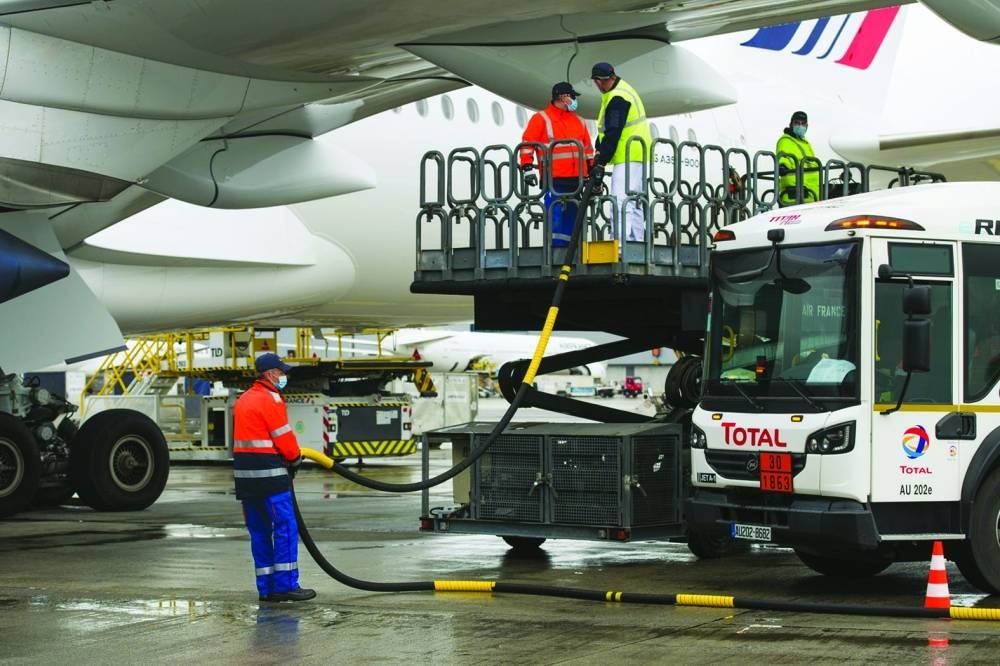| Beyond the Tarmac |
The significance of the LTAG agreement cannot be overstated, points out Conrad Clifford, IATA Deputy Director General. To achieve net-zero CO2 emissions by 2050, government policy support in key areas of decarbonisation is critical, he noted at an industry event in Bangkok.
Achieving net-zero carbon emissions by 2050 will require substantial and sustained investment and financing over the coming decades.
One such area is in incentivising the production capacity of SAF. SAF is currently expected to account for 65% of carbon mitigation in 2050. It will be the largest contributor to future sustainability. But there are challenges.
Airlines bought every drop of SAF available in 2021, and want to use more. They have committed to $17bn of forward purchasing agreements.
The problem is the limited supply and high costs. In 2021, only 125mn litres of SAF were available on the market. That was less than 0.05% of the total fuel used.
According to IATA, in 2021, irrespective of price (SAF is between two and four times the price of conventional jet fuel), airlines have purchased every drop of the 125mn litres of SAF that was available. And already more than 38 countries have SAF-specific policies that clear the way for the market to develop.
Taking their cue from these policy measures, airlines have entered into $17bn of forward-purchasing agreements for SAF.
In October 2021, IATA member airlines came together and took the monumental decision to commit to achieving net-zero emissions by 2050. This commitment brings the industry in line with the Paris Agreement’s 1.5C goal.
Climate change is the greatest threat facing the societies and achieving net-zero emissions will be a huge challenge as the expected scale of the industry in 2050 will require the mitigation of 1.8 gigatons of carbon.
“I urge governments in the Asia-Pacific region to look at stimulating SAF production. Government incentives for SAF could see 30bn litres of production capacity by 2030. This will also reduce the cost of SAF,” Clifford said and noted, “Japan and Singapore have demonstrated an exemplary approach to SAF. They actively involve the industry in their consultation process, and also promote domestic production of SAF. We urge other States to take similar steps, and to support the efforts to develop a global framework for a Book & Claim system for SAF.”
Research has shown SAF can reduce emissions by up to 80% during its full lifecycle. More than 450,000 flights have so far taken to the skies using SAF, IATA data reveal.
On its part the ICAO, launched its Assistance, Capacity-building and Training for Sustainable Aviation Fuels (ACT-SAF) programme in June.
It will provide tailored support to countries on sustainable fuel development and deployment, and facilitate related partnerships and cooperation around the world.
An increasing number of countries and international organisations are becoming actively involved in this programme, which recognises the key role to be played in this endeavour by sustainable fuels, and many more are expected to join in the coming months.
To reduce the impacts of aviation on the global climate, countries, the industry, and all other relevant stakeholders have in fact been pursuing a basket of CO2 reduction measures through ICAO for many years now. This contributed to modern aircraft being 70% quieter and 80% more fuel-efficient than their early predecessors.
“Achieving net-zero carbon emissions by 2050 will require substantial and sustained investment and financing over the coming decades. We must furthermore assure reliable and affordable support and capacity-building for the many developing countries and States with particular needs, who will be depending on it to help play their part,” ICAO Council President Salvatore Sciacchitano said at the COP 27 in Sharm El-Sheikh, Egypt, recently.
National airline Qatar Airways said it is willing to promote SAF if the costs are affordable.
Group Chief Executive HE Akbar al-Baker said: “As for me, I will be delighted to fuel my aircraft as much as possible, provided the SAF costs are affordable. Worldwide, there is a huge demand for alternate fuel – sustainable fuels.”
In an earlier industry event in Doha, al-Baker had said: “Refining companies should provide adequate sustainable aviation fuel so that the airline industry could buy SAF and meet the emission targets even faster.”
“Right now adequate quantities of SAF are not available. At Qatar Airways, we have contacted many refining companies, but they are unable to provide us the quantities of alternate fuel that we want.”
Clearly, wider aviation industry is collectively committed to ambitious emissions reduction goals. Sustainable aviation fuel has been identified as one of the key elements in helping achieve these.
Therefore, governmental support is essential to using sustainable aviation fuels to achieve the industry's climate goals.


